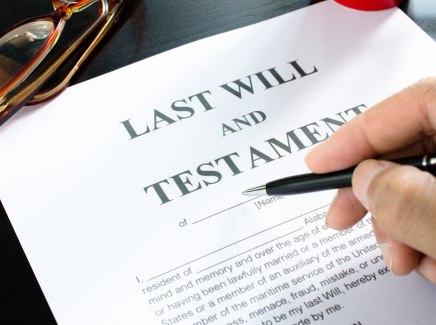Wills & Estates
Imagine how good it would be to sign one piece of paper and:
save money…
save time…
save your family from an insane amount of effort…
help your family to deal with pain better…
and be remembered with pride.
Offer & Cost
What you get when you choose us:
- Everything you need to know in a 10-part video series explaining the process and all the different aspects to draft your own will quick and easy.
- Click here for a full explainer of the series and each video.
- You will enter your information in a fully prepped Google Doc and receive your will immediately.
- Pros and Cons of not having a will. (downloadable)
- Pros and Cons of having a will (downloadable)
- A downloadable conversation starter to discuss with your family regarding your will
- Various downloadable examples of different wills.
Price
A once off fee for full access to program – 499.00
Big Disclaimer:
In the event that you have a complicated asset structure, multiple companies, trusts, etc., contact us directly here. You will need the following to fully optimise your estate:
- Consultation
- Financial Planning
- Estate Planning – We will play out various scenarios to determine the best way to minimise taxes, especially estate duty tax.

Frequently Asked Questions
[fusion_faq filters=”no” number_posts=”-1″ orderby=”menu_order” order=”DESC” title_tag=”h4″ hide_on_mobile=”small-visibility,medium-visibility,large-visibility” boxed_mode=”yes” fusion_font_variant_title_font=”300″ fusion_font_family_title_font=”Roboto Slab” title_font_size=”17″ title_color=”var(–awb-custom_color_1)” toggle_hover_accent_color=”var(–awb-custom_color_1)” fusion_font_variant_content_font=”300″ fusion_font_family_content_font=”Roboto Slab” cats_slug=”wills” /]
Subscribe to Law in a Coffeeshop
Join all the new subscribers and receive Law in a Coffeeshop with tools, tips, and resources directly from Francois.
Once a week.
Every Thursday.
Always free


